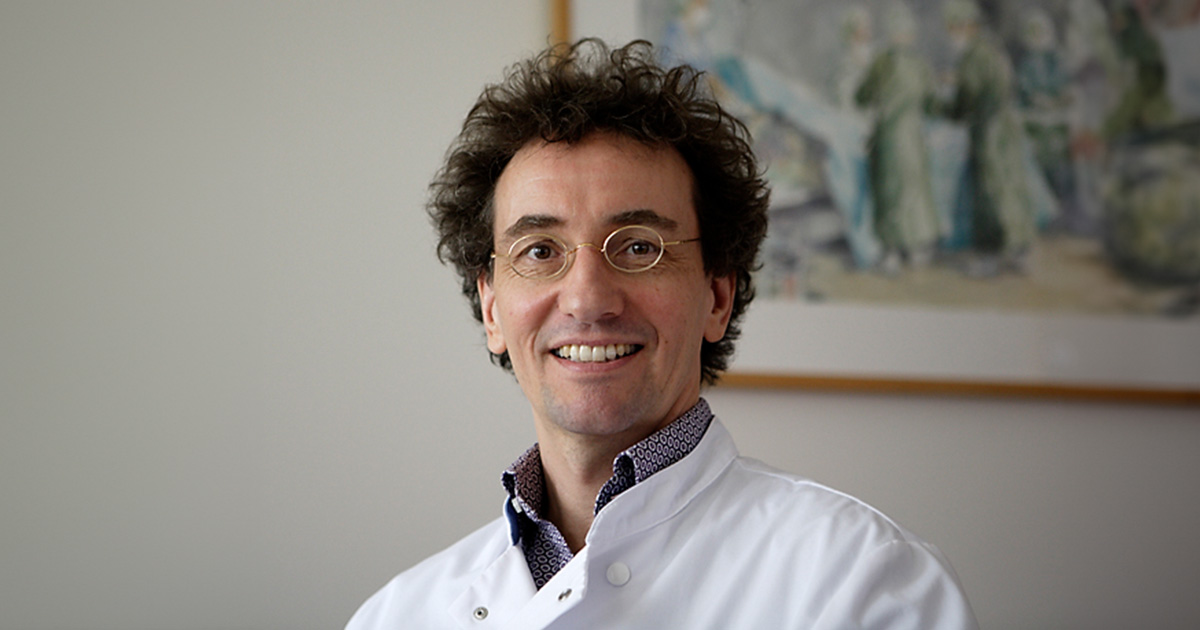Peristomal Skin Health Post-Laryngectomy
Preventing Medical Adhesive-Related Skin Injuries (MARSI): Q&A with Prof. Thomas Rustemeyer.

Understanding of the skin and the factors that influence peristomal skin and skin in general after total laryngectomy helps identify patients that may be at risk for development of Medical Adhesive-Related Skin Injuries (MARSI). Healthy peristomal skin forms the foundation for adherent HME use and an airtight seal for efficient TE speech.
Thomas Rustemeyer is professor in dermatoallergology and occupational dermatology at the Department of Dermatology-Allergology at the Amsterdam University Medical Centers, the Netherlands. He is supervisor of immunological research of the University, and he is active in supervising patient’s care and research addressing fundamental immunological and translational research topics. He is (co)author of more than 300 publications and editor of several textbooks. He is member and/or chairperson of various national land international societies active in dermato-allergology, immunology and occupational health, including governmental and regulatory affairs. We had a sit-down with Prof Dr Rustemeyer, to learn more about skin-health for laryngectomized patients.
Are some patients more at risk for skin breakdown? And if so, how can we identify them?
This is a very good point – to prevent problems. Not everyone has the same skin condition. Skin tends to get thinner as we age. As people get older their skin becomes more fragile. And the same holds true for people who had radiotherapy at the site and people who use topical steroids that cause thinning of the skin. In addition to age, diabetes can also slow down skin regeneration and weakens the skin. Thus, people who suffer from long-term diabetes also have fragile skin and an increased risk for wound infection. In these cases, you should pay extra attention not to harm the patient by removing the adhesive with too much force or by leaving it on for too long.
How do you identify whether something is an irritation or an infection of the skin?
This is not black and white, because infection follows irritation, and sometimes irritation can follow infection, but this is not so frequent. So, to prevent infection, you need to prevent irritation and therefore these baseplates are so important, even using them as soon as possible after surgery. Irritation from the adhesive should be sharply demarcated, so where the adhesive is, the irritation should end. An infection is causing a reaction of the immune system, so it tends to be broader and becomes bigger within 1 or 2 days, it’s growing as it is an infection.
Do you have any tips on removing the adhesive?
It must be done gently and carefully, so take your time. Do not remove it abruptly and quickly as this will pull off the horny cells which are the skin barrier. In addition, the sheering forces can lead to irritation of the skin. Inform the patient to take their time to remove the adhesive. If possible, in front of a mirror. Gently peel it off millimeter by millimeter. Leave the skin open for a couple of minutes so it can rest and evaporate. Maybe even a little longer, to help the skin settle down. These are the most important things. I would recommend not to use any creams or body lotions, because they have preservatives in them, and they are often scented. Then you have the fragrances and preservatives on the skin and when you apply the adhesive over that you have a higher penetration of the allergens which in the end may lead to allergic contact dermatitis. One final thing, you could be allergic to the adhesive, but the risk is very little. If a patient tells you and starts to complain that the skin is getting worse and worse, think about the contact allergy. You can simply test it by putting a piece of adhesive, for example on the arm or the back, a patch test, and leave it there for a few days. And ifw the patient also gets itchy, red and eczematous skin there, where the skin was normal, also gets itchy, red and eczematous skin, then you are most likely dealing with allergic dermatitis. And this irritation can be very well treated by using corticosteroids (from a nose spray) underneath the baseplate. Use nose spray, not cream or ointment, because they are greasy and will prevent the adhesive from sticking.
Interested to learn more?
Read our whitepaper on skin health for laryngectomized patients here.
Any recommendations in this educational material are a general guide for best practice, to be implemented by qualified healthcare professionals subject to clinical judgement and availability of healthcare resources.
The information presented should not be considered medical advice for specific conditions. A patient’s individual circumstances and preferences should always be considered and clinical practice should be in accordance with the principles of protection, participation and partnership.
Share
Save to my content